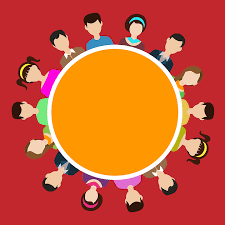“What’s the matter, the cat got your tongue?”
“Don’t you have something to say?”
 These questions may sound familiar. Do you recall a time when you were asked to speak up, and you didn’t? Or, perhaps you felt the urge to voice your opinion, and you refrained from doing so? Or, how about those times when you started to speak, and then you held yourself back in some way? Often, we may have lots to say, but we withdraw, for fear of being misunderstood, disrespected, or not even truly heard at all.
These questions may sound familiar. Do you recall a time when you were asked to speak up, and you didn’t? Or, perhaps you felt the urge to voice your opinion, and you refrained from doing so? Or, how about those times when you started to speak, and then you held yourself back in some way? Often, we may have lots to say, but we withdraw, for fear of being misunderstood, disrespected, or not even truly heard at all.
Have you been feeling stuck in one or more areas of your life? Shutting down your self-expression may be a big reason why. In this edition of Soul Notes, let’s dive into the need to express ourselves, and the consequences for not doing so. We’ll explore some ways to open up the channels, too, so that you are feeling free to express yourself, open, balanced, and unencumbered.
The body and our energy centers give clues
Within the chakra system, the fifth chakra (“vishuddha”) is the throat chakra, and represents the embodiment of communication. It’s the Messenger, the Grand Communicator of the chakras. Up the chakra “ladder,” it is considered the first of the three higher or spiritual chakras. What’s the significance, you may be asking? The higher the messages, the higher the creativity, and the higher the impact! Strength of our personal will — this also comes from the throat chakra.
It’s important to note that the throat chakra serves as a transmitter and as a receiver. The messages may be internal as well as external. When out of balance, this chakra shows up in such tell-tale signs as a sore throat, a pinched nerve in your shoulders, or yes even as a real “pain in the neck”! Alternatively, a balanced throat chakra opens you up to psychic insights, and higher guidance and wisdom. When we are listening to “that voice of reason,” our throat chakra is clear, and receptive to what our intuition is telling us. Correspondingly, it is the throat chakra that is most associated with our dream state. A balanced throat chakra sets the stage for powerful and informative dreams.
Authentic expression
The throat chakra is also the truth center. Speak your truth! Say what needs to be said, without harsh judgment, without malice. Speak up for yourself and what you desire to express.
Say you what you mean, and mean what you say. The more you invoke this process, the more your fifth chakra will open. You’ll notice the tension in your neck, if any, will lessen, and your body (and overall demeanor) will feel more free, clear, fluid, and in the flow.
Conversely, deceit violates our body and our spirit. Insincere communication thwarts our divinity. Equally as damaging as keeping quiet and suppressing our truth is being overly critical, bitingly caustic, or engaging in gossip or idle chit-chat. It is important to speak our choices with our authentic voices! Expressing from our spiritual essence means exuding kindness, understanding, and compassion.
Listening and being heard
Accordingly, as mentioned above, listening (receiving) can be as important as expressing (transmitting). Like breathing, it’s an exchange of going inward as well as expressing outward.
Effective communication often begins with hearing, with listening – in the physical sense as well as the metaphysical. As with speaking from a place of compassion and understanding, so, too, it is with hearing and listening – to ourselves and to others. We all have a basic need to be heard. (For more on this topic, go here). To fully listen means to devote your undivided attention. If you’re not 100% focused on listening, then you’re not truly hearing the messages. Accordingly, you’re not in alignment: you’re off-centered, off-track, and likely leaning toward that place of being “stuck” and “blocked”. Plain and simple!
Ways to open up the communication channels
When feeling blocked, or unable to express yourself, here are a few effective, tried and true ways to open up your fifth chakra: Engage in reading aloud, singing, chanting, and humming (in fact, not-so-coincidentally, the mantra sound for this chakra is ‘hum’!) For a particularly restorative experience, you may wish to try sound healing. At yoga centers and other gathering places in your area, for example, you may check their calendars for upcoming sessions where gongs, drums or singing bowls are used.
Listen to what your intuition has to say, open up to receiving divine messages, and speak your mind (and from your heart and soul) with compassion and understanding. From a loving place, express yourself and share your truth and wisdom with others throughout your day, your week, your lifetime. Now, I’d say that’s effective communication!
For your consideration:
Take the bold inspired step to ask yourself this soul searching question: How honest am I being in my communication – with myself, and with others?
Okay, your turn:
In what situations do you find yourself holding back from fully expressing yourself? What are you open to doing differently next time?
I invite you to share your thoughts, feelings, and experiences in the Comments section, below. Soul-to-soul!

 Since JT (Justin Timberlake) has already brought sexy back, I’m bringing “sistren” back! According to the Oxford dictionary, both brethren and sistren shared common parlance until the 1600s, when the word brethren started to take over. I say there’s plenty of room for both!
Since JT (Justin Timberlake) has already brought sexy back, I’m bringing “sistren” back! According to the Oxford dictionary, both brethren and sistren shared common parlance until the 1600s, when the word brethren started to take over. I say there’s plenty of room for both!



 Let’s consider the need to be heard. It’s a basic, fundamental need. We know when it’s being met. (And, we sure do feel it when it isn’t!) It feels wonderful to be seen, to be witnessed, and to be truly heard.
Let’s consider the need to be heard. It’s a basic, fundamental need. We know when it’s being met. (And, we sure do feel it when it isn’t!) It feels wonderful to be seen, to be witnessed, and to be truly heard.